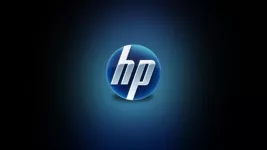I’d really hoped Hostile Acquisitions had become obsolete after Oracle’s acquisition of Peoplesoft. Using the acquisition process to kill companies and harvest their corpses were unfavorably showcased in the movie Wall Street back in 1987 and once cast as corporate villains, Corporate Raiders seemed to lose interest. But some Corporate Raiders hung in there and continue to be huge threats to US Corporations. HP is currently under fire by one of the oldest and most powerful Corporate Raiders, Carl Icahn. Carl is using Xerox as the striking entity, but with the stock market in near collapse, things aren’t going well for the takeover effort. Jesse Cohen, an analyst out of Investing.com, is also skeptical. He has pointed in the past to his belief that the merger of these two companies will benefit neither of them.
Let’s do an update on the hostile attempt by Xerox this week.
Xerox In Desperate Shape
Xerox has been run by what appears to be a hand-picked team of business managers selected by Carl Icahn, and things haven’t been going well there. Typically, companies need to be run by subject matter experts who can set and execute strategy. A business manager, on the other hand, can cut costs and position a company for sale, either as a somewhat complete entity or for parts. Still, they can’t carry the company forward, and currently, Xerox stock is trading at the bottom of their 52-week range.
This price drop is problematic for the hostile takeover because part of the proposed deal consists of Xerox Stock, and at the time of the initial proposal, that stock was trading at the high end of the 52-week range and over $37 a share. That is a drop of around a quarter, effectively wrecking some of the core economics of the proposal ($18.40 in cash plus .149 shares of Xerox stock). With the old stock price that converted to $18.40+$5.60 or $24 per share, but with the decline the new funding level drops closer to $22 that’s a slight premium over HP’s current $19 price, but typically you’d need a much larger premium to drive a change. So, even though the proposal still says $24 a share, it is inaccurate, and while a $2 difference doesn’t seem like much for those that have large blocks of HP stock, it is very significant.
Cross Research
Cross Research, a firm that specializes in financial research, has flagged this as a problem concerning Xerox funding the proposed acquisition (Wells Fargo’s analysts appear to agree). But this isn’t the only problem it seems that Xerox has secured funding for up to $17 a share for the cash position, but they are a whopping $2B short of the money they need to fund even the $18.40 cost they proposed in their deal.
The current market conditions are hazardous right now. Given this is a hostile takeover which typically guts the acquired company, the combination of an assured negative outcome from the deal for HP’s income coupled with the overall volatility of the market makes this deal look increasingly unattractive for financing entities. They don’t want to be left with billions of dollars in loans on a company that was put into bankruptcy by the very deal they financed because that would make the decision-makers look like idiots.
The optics of funding the destruction of an iconic Silicon Valley firm like HP Inc. aren’t good either. With the increasing likelihood that the Democrats will win the coming election the backlash on financial institutions that funded the destruction of a firm landing and landing in financial trouble themselves would likely not be pretty. Citibank, the firm structuring the deal, could be become the example the Democrats need to massively ramp-up regulation, particularly regarding efforts like this that destroy companies, jobs, and shareholder value.
At the very least, creating a massively leveraged company with uncertain management during a time when the outlook for the segment isn’t right, thanks to Covid-19 would look, in hindsight, idiotic.
Wrapping Up: Success For Xerox/HP Merger Increasingly Illusive
The trends are all moving the wrong way for this merger. Yes, Xerox has put forward an A list of potential new directors for the combined company. Still, experienced traders know these people are just doing this for a $100K paycheck, and they have no intention of sitting on the combined company’s board long term. Xerox’s board is the model for what is likely to result, and they haven’t been able to successfully run Xerox, let alone step up to running a combined Printing/PC company.
The fact Xerox is avoiding due diligence and trying to ram this deal down HP’s throat also indicates Xerox is desperate. As they should be, because the Fujitsu partnership they just bought out of appeared to be critical to the firm’s continued success and without someone like HP to take Fujitsu’s place Xerox’s long term outlook is dire. But a forced merger is no way to fix a problem like this. Mergers between two stable companies after substantial due diligence aren’t guaranteed successes, not by a long shot, those between one or too troubled entities without due diligence are typically suicidal. Investors like Carl Icahn might pull out a profit, but the lenders, employees, and customers are likely to be screwed. While lenders can be institutionally stupid (recall the sub-prime mortgage problem), they tend to avoid it these days.
In the end, the hostile takeover of HP by Xerox appears less viable than it was last month, and the trend suggests this deal is unlikely to survive the quarter.








